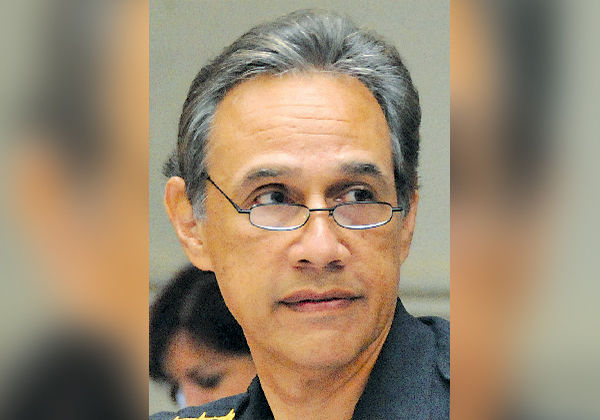LIHUE — The state Senate is reviewing two bills that would grant county mayors the power to fire police chiefs and require more qualifications for police commissioners. District 19 State Sen. Will Espero of Oahu introduced the bills that are
LIHUE — The state Senate is reviewing two bills that would grant county mayors the power to fire police chiefs and require more qualifications for police commissioners.
District 19 State Sen. Will Espero of Oahu introduced the bills that are currently in the Committee on Judiciary and Labor, with testimony from Kauai residents both in favor and opposition.
District 8 State Sen. Ron Kouchi, of Kauai said he is not in support of Senate Bill 677, which would grant the mayor authority to fire a police chief. He had no opinion on Senate Bill 389, which would require three of nine police commissioners to have experience in civil rights, women’s issues and law enforcement, and one appointed member from the State Commission on the Status of Women.
“We will see what comes out,” Kouchi said.
Kauai County Councilman Gary Hooser testified in support of SB 677. He said the blurred lines of administrative authority show there is a need for reform, or a lapse of leadership in public safety could result when officers are placed in the position of having to choose between the mayor and their chief.
“SB 677 is a credible effort to resolve an important element of this jurisdictional conundrum and I encourage the committee to support this effort and move forward this important conversation,” Hooser stated.
Kauai Chief of Police Darryl Perry testified as an individual, and not on behalf of the county, in opposing SB 677, “as a citizen and as someone who was directly impacted with what I know to be a misapplication of power.”
The bill advances ideology that violates the principal of an independent judicious oversight body to control unrestrained power, Perry said. The politicization of law enforcement is a recipe for cronyism and corruption, he said.
“At the very least, it violates the basic military and para-military principle of unity of command,” Perry said Monday.
Mayor Bernard Carvalho Jr. suspended Perry for seven days on Feb. 2, 2012. It came out later that it was for inaction on an internal investigation, although Perry disputes the claim and said he had requested leave.
The Police Commission ordered Perry back to work two weeks later. The mayor intervened, saying he had the authority to refuse to reinstate Perry, and officers sided with the mayor, preventing Perry from drawing equipment to assume authority.
Perry continued to work in civilian clothing and delegated most department matters. He, the mayor, and the police commission chair held a press conference a month later to announce the chief would return to duty as the matter worked itself out in court.
The 5th Circuit Court ruled on Oct. 30, 2012, that the mayor has the power to suspend or discipline the chief of police.
In his ruling, Chief Judge Randal Valenciano said the mayor has authority over all departments except where the charter provides language in the alternative. The police commission does not have sole authority to suspend or discipline the chief, and although it is charged with hiring or firing chiefs, the mayor was responsible for enforcement of the provisions of the charter, ordinances and applicable laws.
Questions sent to Carvalho were not returned by press time Monday.
The disciplinary actions of the mayor relate to this bill as well as the police commission’s appeal of the court’s decision, according to testimony from Kauai Police Commission Vice Chair Charles Iona in opposition. An employment requires the chief to report to the mayor on public safety and budgetary matters, but to the police commission on all other issues.
Giving the mayor sole discretion over the chief would eliminate the buffer that prevents top law enforcement officials from being exposed to politics of the administration, he added. The bill makes it conceivable chiefs might come and go on election years.
“This would not be good for the community, especially when the police chief is so well respected in the community,” Iona said.
Former County Council candidate Felicia Cowden testified in support of SB677, but wanted a clear definition of “just cause in the bill.”
A recommendation for removal of a police chief should require broad oversight with two of three bodies of governance in support, she said, to include the mayor, but also the county council, or the police commission to concur.
Without change, she said the police chief, and commission chair, are vulnerable to a rogue department. This places the community at risk of targeted demographics, complaints of physical abuse of officers, internal intimidation, unresolved crimes, or excessive petty arrests and asset forfeitures.
“Several layers of oversight need to be structured for balance and fairness,” she added.


